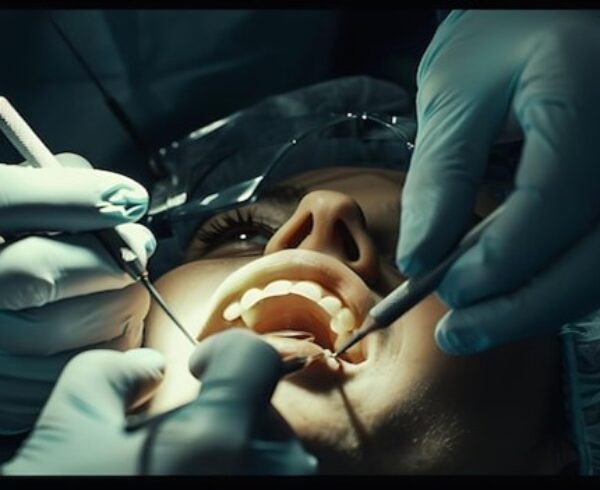Periodontitis, a severe form of gum disease, can have a significant impact on your oral health if not properly managed. Understanding its effects and knowing what actions to take can help you maintain a healthy smile. Here’s what you need to know about periodontitis and how to address it.
What is Periodontitis?
Periodontitis is an advanced stage of gum disease that occurs when inflammation from gingivitis (early gum disease) progresses. It results in the destruction of the tissues and bone that support your teeth. Symptoms often include swollen and bleeding gums, persistent bad breath, gum recession, and even tooth mobility.
How Periodontitis Affects Your Oral Health
- Gum Recession: As periodontitis advances, the gums pull away from the teeth, creating pockets that can become infected. This recession not only affects your appearance but also exposes tooth roots, increasing sensitivity.
- Bone Loss: The infection can lead to bone loss around the teeth, which compromises their stability and can ultimately result in tooth loss if untreated.
- Bad Breath: Persistent bad breath or a bad taste in the mouth is a common symptom of periodontitis, often caused by the bacterial infection and decay of gum tissues.
- Tooth Mobility: As the supporting structures of the teeth deteriorate, teeth may become loose or shift position, affecting your bite and overall oral function.
What You Can Do
- Maintain Good Oral Hygiene: Brush your teeth twice a day with fluoride toothpaste and floss daily to remove plaque and prevent it from hardening into tartar. Regular brushing and flossing are essential in managing and preventing periodontitis.
- Regular Dental Check-ups: Visit your dentist regularly for professional cleanings and check-ups. Early detection and treatment of gum disease can prevent it from advancing to periodontitis.
- Professional Treatment: If you suspect you have periodontitis, seek professional treatment promptly. Your dentist may recommend scaling and root planing, which involves deep cleaning of the gums and teeth, or other periodontal therapies to address the infection and restore gum health.
- Lifestyle Changes: Adopting a healthy lifestyle can also contribute to better gum health. Quit smoking, eat a balanced diet rich in vitamins and minerals, and manage stress effectively, as these factors can impact gum health.
- Follow Your Dentist’s Advice: Adhere to any prescribed treatments or recommendations from your dentist. They will provide guidance tailored to your specific condition to ensure effective management of periodontitis.
Periodontitis can have serious consequences for your oral health, but with proper care and treatment, you can manage it effectively. If you’re experiencing symptoms or need advice on maintaining gum health, reach out to The Ackerman Clinic. Our expert team is here to support you in achieving and preserving optimal oral health.






